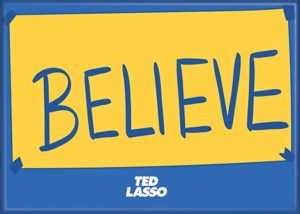From succession/continuity planning to developing policy, a common concern of families we work with is: “We don’t want this to hurt our family harmony. We’d rather sell the business before wrecking our family.”
Family harmony — how we get along with each other in business and in family — is a core value and goal of any family business or family enterprise. As the family grows and changes, its harmony must also be nurtured to grow stronger and endure any challenges ahead.
Durable family harmony is like a lighthouse. It stands up in the face of intense storms and remains sturdy over long periods of time. It is strong and stable — now and in the future — to fulfill its purpose of guiding sailors into safe harbor or away from dangerous obstacles. Likewise, family harmony allows your family, the business and its ownership to fulfill their purposes.
We help families strengthen relationships by facilitating sometimes difficult conversations, making sure everyone has the space to be heard, and working toward decisions and beneficial outcomes. Through these experiences, we’ve identified central components of family harmony along with thought-starters to help assess its durability.
Our intent is to provide a useful tool that can help you consider initial thoughts and questions for your own reflection and perhaps discussion as a family. Each section of “DURABLE” outlined below contains practical questions that can help you and your family think about, discuss and evaluate the current state of your family harmony – ultimately leading to solid continuity of both family relationships and business success.
Desire
With desire comes the motivation and energy to do things differently. It also increases the likelihood that there is enough momentum to do the hard work required for change. When it comes to family harmony, you have to want it. That includes wanting harmony more than proving someone wrong. More than any dividend or a new position in the company. And even more than being right.
- How would you rate the current state of your family harmony? Why?
- How badly do you want things to change?
- What would be different with greater harmony?
- Will things feel better if you make change?
- What actions are you willing to take to achieve greater family harmony?
Understanding
Building understanding is key to grasping issues, defining problems and moving toward meaningful solutions and outcomes. Listening well is an important part of understanding. Not just hearing but taking the time to discover why others hold their positions on issues of difference. Every family business has stories that are causing friction or confusion. By identifying and addressing the stories that require a greater understanding, families can move beyond those into deeper harmony and alignment.
- What are the stories regarding how the business was started?
- How are transitions understood in the business, such as family members entering and leaving and generational changes?
- Who is in what role and why?
- How and why does the family influence the business and the business influence the family?
- What is the future of the business?
Reflection
Family roles are well-established over time, and relationships in the context of a family business add another layer of complexity. This often leads to relationships with unresolved past hurts and resentments. Remember that the absence of open conflict doesn’t equal harmony. Things left unsaid can be just as damaging to cohesion. Reflect on what role you played in a relationship that needs healing rather than defaulting to blame or defensiveness.
- How has your role impacted family harmony?
- What are the reasons you might want to change?
- What has/has not worked related to your roles in the family; as a manager of the business; and/or an owner of the business?
- Understanding that with friction comes change, are you willing to have difficult conversations? With whom?
- In what ways are you willing to address conflict openly?
- In what ways are you open to reflection about how to listen differently; move through and reconcile past hurt; and collaborate with a common goal?
Accountability
Accountability recognizes that we have responsibilities and obligations to each other, and we take them seriously. Healthy and helpful accountability flows from agreed upon goals, based on common values. It sets expectations for improvement if we don’t do what we say we will do and for celebration/acknowledgement when we achieve our agreed-upon goals. All our desire for harmony falls short if we compromise values or tolerate egregious behavior.
- How do you take responsibility for your actions?
- Are you willing to be accountable to others for your actions?
- Is there a culture of accountability in your family, business and ownership groups?
- What are the processes and systems by which we hold ourselves and each other accountable? Are they consistently applied?
- How do we hold each other accountable in positive ways that acknowledge success and celebrate wins?
Believe

Durable family harmony is fueled by believing that everyone – you, your family, your business – can achieve this together. Unfortunately, a long pattern of disharmony can undermine the ability to believe. Fans of Ted Lasso associate “BELIEVE” with the coach’s eternal optimism and drive to inspire others. Ted teaches his team that if they believe in themselves and work their hardest, then they could accept whatever the outcome knowing that they believed, and they tried.
- Do you truly believe that things can be different?
- How do you believe in yourself, your family, your business, your system overall?
- In what ways do you believe in the possibility and power of collaboration?
- How can you shift to a clear and well-defined common vision for family harmony?
Love
Working with relatives opens many windows to view each other’s behaviors – the good and the bad. Love is a both a feeling and a choice that can motivate us to keep trying and working together, even when we are frustrated or disappointed. Because “Love” isn’t guaranteed just because you are family, it must be intentionally nurtured. How can you nurture love:
- For those in your family? All the branches?
- For the history, legacy and stories of your family? The business?
- The mission, purpose, values of your family? Your business?
- Can you choose love, even in conflict? And, can you put your attention on those things that promote love?
Love can also be about where you focus your thoughts and attention. You can concentrate on disappointments and failures or, you can focus on possibilities and potential. Without a shared purpose and vision, it is hard to see big picture.
- Is there a clear vision for why your family is in business together?
- What is your shared purpose as a family?
- What are the common values that bring you together in family and work?
- How can our family’s focus lead to an expression of love that benefits those beyond your family as you live out your shared values? (i.e Philanthropy? Economic benefit for your family? Your region? Career satisfaction?)
Enough
Harmony exists along an ever-shifting continuum and is not equal in every family. Exploring and answering key questions can help define what is enough for your family and how family harmony can support your specific goals.
- What is enough for your family as related to harmony? How have you considered this if you are moving into a focus on this work?
- After doing the hard work to shift family harmony, how will you know that there is more harmony? What would be different?
- How can you create defined goals around your expectations of “enough”?
- In what ways can these goals be measurable to ensure that they are in support of not just harmony but durable harmony?
Conclusion
The more durable the family harmony, the more durable the enterprise. Once the unity starts to erode, so does the entire system of family, business and ownership. Family harmony is a core issue, focus and outcome that is integral to the discussion about any aspect of family business. It can either enable or block success and continuity in any endeavor or plan.
Ultimately, we believe that family harmony is truly like a lighthouse for your family business. As it endures intense storms and stands the test of time, it most significantly serves to guide and protect the core values and purpose of your family and business. We hope this simple list of thought/discussion questions will enable you and your family to assess the current state of your family harmony, and move forward to making it more durable. We are here to support you during these challenging conversations.
Webinar Recording
Interested in learning more about this topic? View our free one-hour webinar presented by Tom and Jennifer: Durable Family Harmony: Smoother Sailing to Family Business Success.
April 5, 2022
